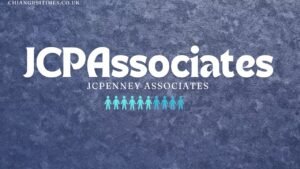c.w. park usc lawsuit: Unveiling Academia’s Shadow
The landscape of higher education regularly serves as a beacon of enlightenment and development, but sometimes shadows lurk in its corridors that challenge its integrity and values. The latest criminal battle surrounding the c.w. park usc lawsuit embodies this dichotomy, illuminating systemic issues in educational institutions while stimulating critical conversations about accountability, transparency, and protecting the rights of college students
Contents
Background and Timeline:
The Genesis of the c.w. park usc lawsuit returned to a series of alarming lawsuits filed by college students in opposition to C.W. Park, a former professor at USC’s esteemed School of Cinematic Arts. Allegations of misconduct and unethical behaviour rang through the halls, leading to a thorough investigation into the matter. As the research unfolded, it uncovered a labyrinth of complexity, mitigating systemic disasters in dealing with reports of harassment and discrimination at the university.
Key Players Involved:
At the centre of the legal drama are c.w. park, the accused professor, and USC, an organization under scrutiny for its handling of the allegations. The park, once acclaimed for its educational prowess, now finds itself mired in controversy and vehemently denies any wrongdoing. USC, alternatively, faces an important point in defending its popularity and integrity amid mounting accusations of negligence.
Allegations and Implications:
The charges against c.w. park usc lawsuit fade a little further beyond the boundaries of the court file. They focus on the ever-present issues of power dynamics and academic misconduct, sending shockwaves through the higher education community. The lawsuit exposes gaping cracks in the institutional framework, prompting introspection and demanding reform to ensure the safety and well-being of all participants in the academic community.
Impact on Students and Faculty:

For the students and the school at USC, the implications of the lawsuit are deep and far-reaching. A palpable sense of unease pervades the campus, shattering the illusion of protection and faith. Students struggle with emotions of betrayal and disillusionment, even as individuals at the school struggle to control their complicity in keeping the way of life quiet. The fallout from the lawsuit leaves an indelible mark on the university network and sparks conversations about the duty and vital importance of an institutional surrogate.
Responses and Possible Implications:
In response to these allegations, c.w. park usc lawsuit statement affirming its commitment to transparency and ethical behaviour. Still, the threat of doubt looms large as criminal charges emerge. The final results of the lawsuit have profound implications for better educational institutions nationwide, serving as a litmus test for their potential to address misconduct and promote ideas of justice.
Lessons Learned and Moving Forward:
Amid the turmoil, the lawsuit provides c.w. park usc lawsuit with useful training for academia. It highlights the essential requirement for transparency, accountability and an ongoing commitment to fostering a safe and inclusive environment. As universities face a lack of litigation, they should ensure a clear name for reform, strengthen their governance systems, and establish strong mechanisms for reporting and addressing misconduct.

Unveiling the Complexities:
Delving deeper into the intricacies of the c.w. park usc lawsuit reveals a story full of complexities and nuances. Beyond the superficial allegations lie deeper questions about institutional culture, power dynamics, and the effectiveness of current safeguards. By peeling back the layers of this prison saga, we are better able to understand the forces at play and the broader implications for higher education.
Anatomy of Allegations:
At the heart of the lawsuit are allegations of sexual harassment and discrimination towards c.W. Park, which displays a broader societal reckoning with issues of gender-based misconduct. The allegations paint a disturbing portrait of a way of life of impunity and silence, where the voices of the suffering are silenced and the perpetrators get off with impunity. The lawsuit serves as a sobering reminder of the pervasive nature of such misconduct and the pressing want for systemic trade.
A Lens into Institutional Failures:

Disclosure of c.w. park usc lawsuit exposes systemic problems within USC’s institutional framework. From insufficient reporting mechanisms to a lack of duty, the academy’s response to the allegations exposes glaring flaws in its dedication to the protection and welfare of students. The case underscores the vital importance of universities confronting institutional complicity and prioritizing the established order of environments wherein all people feel valued and revered.
The Human Toll:
Amid the criminal scrambles and institutional posturing, it’s important not to lose sight of the human toll of the c.w. park usc lawsuit. For survivors of harassment and discrimination, the quest for justice is fraught with limitations and emotional turmoil. Their courage to move forward serves as a beacon of hope during the darkness, spurring wider communication around the effort to focus survivors’ voices in pursuit of accountability and reform.
Implications for Higher Education:
Consequences of the c.w. park usc lawsuit extends far beyond the boundaries of the court and is reflected throughout the panorama of higher training. As universities grapple with the fallout, they have to confront uncomfortable truths about the dynamics of power and institutional complicity. The case catalyzes plenty-wished introspection and reform, calling for better instructional institutions to rethink their policies and practices to ensure the safety and well-being of all members of their groups.
Charting a Path Forward:
After the lawsuit, c.w. park usc lawsuit road to reform may also seem daunting, but it’s not insurmountable. By focusing on the voices of survivors, fostering a culture of accountability, and enforcing strong safeguards, universities can begin to rebuild consent and chart a path toward a destiny described through equity and inclusion. The lawsuit serves as a call for higher education institutions to face the shadows of wrongdoing and embody the peace of transparency and fairness.
Conclusion:
The lawsuit by c.w. park usc lawsuit is a watershed second location inside the annals of higher education, an organization that finds it tough to confront uncomfortable truths and embark on a path of transformation. By confronting the shadows of misconduct and embracing the light of duty, universities can chart a path towards a destiny described via integrity, equity, and an unwavering commitment to the pursuit of know-how.
FAQ’s
1. What is the c.w. lawsuit about? USC Park?
c.w. park usc lawsuit revolves around allegations of misconduct and irrelevant conduct against both USC and c.w. Park, a former professor at the university. It includes allegations of sexual harassment and discrimination, shedding light on systemic problems in educational institutions.
2. Who are the key players in the lawsuit?
The primary figures in the c.w. park usc lawsuit, the accused professor, and USC, a group under scrutiny for its handling of the allegations. Legal groups representing each side are actively involved in the complaints, along with brave students who have showcased their experiences.
3. What are the implications of the lawsuit for better educational institutions?
The lawsuit has a ways-attaining implications for establishments of better education nationally and serves as a litmus take a look at to evaluate their capacity to deal with allegations of wrongdoing and uphold requirements of equity and duty. It emphasizes the significance of transparency and strong safeguards to ensure the protection and well-being of all people in academia.
4. How has the lawsuit affected the undergraduates and the college at USC?
The lawsuit has created a sense of uncertainty and trouble among undergraduate students and the college at USC, sparking crucial conversations about institutional culture and accountability. Students struggle with emotions of betrayal, while college students struggle to control their roles in dealing with issues of harassment and discrimination on campus.
5. What answers were issued through USC and c.w. Park?
USC released a statement expressing its commitment to transparency and accountability in handling the allegations. C. W. Park denied any wrongdoing and asserted his commitment to ethical behavior. Both actions are actively attractive to court cases because they go through the complexities of litigation.
6. What classes can be learned from the c.w. park usc lawsuit?
The lawsuit underscores the importance of transparency, accountability, and an unwavering commitment to fostering safe and inclusive environments within better educational institutions. It catalyzes reform and prompts universities to review their guidelines and procedures to ensure equity and fairness for all participants in their groups.
7. What are the broader implications of the lawsuit for the academic community?
The lawsuit has broader implications for the academic community, sparking conversations about energy dynamics, ethics and protecting the rights of college students. It serves as a challenge to universities to confront systemic issues of misconduct and abuse, paving the way for a destiny described through integrity, equity and inclusivity.














Post Comment